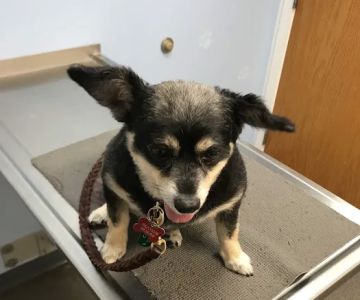Signs Your Dog Might Have an Infection
- Understanding Dog Infections
- Common Signs of Dog Infections
- How to Diagnose Dog Infections
- Treating Dog Infections
- Preventing Dog Infections
Understanding Dog Infections
Infections in dogs can range from mild to severe, and identifying them early is key to effective treatment. Infections may affect different parts of the body, including the skin, ears, urinary tract, respiratory system, or even the internal organs. The cause of these infections can be bacterial, viral, fungal, or parasitic, and it’s important to recognize the signs of infection before they escalate.
Many dog infections can be treated successfully with prompt veterinary care, so understanding what symptoms to look for can make a big difference in your pet’s health and recovery.
Common Signs of Dog Infections
While some infections in dogs might be obvious, others can be more subtle. Here are some common signs your dog might have an infection:
- Unexplained Fever: One of the first signs of infection in dogs is a fever. If your dog feels unusually warm to the touch or seems sluggish, they could be fighting an infection. A fever is the body’s natural response to illness, and it’s often accompanied by other symptoms like loss of appetite or lethargy.
- Changes in Appetite or Drinking Habits: A sudden decrease in appetite or an increase in thirst can signal an infection. If your dog is refusing food or water, or if they’re drinking excessively, it could be a sign of an infection in the digestive or urinary systems.
- Discharge from Eyes, Ears, or Nose: Infections often result in unusual discharge. A yellow, green, or bloody discharge from your dog’s eyes, ears, or nose is a strong indication of an infection. Pay attention to whether your dog is excessively licking or rubbing these areas.
- Vomiting or Diarrhea: If your dog starts vomiting or has diarrhea, this could be a sign of an infection affecting the digestive system. Infections from bacteria like Salmonella or parasites like Giardia can cause gastrointestinal issues in dogs.
- Persistent Coughing or Sneezing: A persistent cough, sneezing, or nasal congestion is often linked to respiratory infections. Canine respiratory infections, like kennel cough, are highly contagious and require medical attention to prevent complications.
- Skin Issues: Redness, swelling, bumps, or sores on your dog’s skin are common signs of skin infections. Dogs with allergies or flea infestations are more susceptible to bacterial or fungal skin infections, which can lead to itching and discomfort.
- Behavioral Changes: If your dog is more irritable, withdrawn, or excessively tired, these could be signs that something is wrong. Infections can cause a decrease in energy levels, making your dog seem lethargic or uninterested in activities they normally enjoy.
- Bad Breath: A strong, foul odor from your dog’s mouth can indicate an oral infection or abscess. Dental infections are common in dogs and should be treated promptly to avoid further complications.
How to Diagnose Dog Infections
If you notice any of the above symptoms, it’s essential to schedule a veterinary visit as soon as possible. A veterinarian will typically start with a physical examination, followed by diagnostic tests such as blood work, urine analysis, or cultures from infected areas to determine the specific cause of the infection.
In some cases, your vet may recommend imaging tests like X-rays or ultrasound to check for internal infections that may not be immediately apparent. The more information you can provide about your dog’s symptoms and behavior, the easier it will be for the vet to make an accurate diagnosis.
Treating Dog Infections
Once a diagnosis is made, your veterinarian will recommend an appropriate course of treatment for your dog’s infection. Treatment may include:
- Antibiotics: If your dog has a bacterial infection, your vet will likely prescribe antibiotics. These can be given in the form of tablets, injections, or topical ointments, depending on the location and severity of the infection.
- Antifungals or Antivirals: If the infection is caused by a fungus or virus, your dog may require antifungal or antiviral medication to fight the infection.
- Pain Management: In some cases, infections can be painful, and your vet may prescribe painkillers or anti-inflammatory medications to help manage your dog’s discomfort.
- Surgery: For certain infections, particularly those involving abscesses or deep tissue infections, surgery may be necessary to remove infected tissue or drain pus.
- Fluids and IV Therapy: If your dog is severely dehydrated or not eating, intravenous fluids may be administered to help rehydrate and support their immune system while they recover.
Be sure to follow your vet’s instructions carefully and complete the entire course of treatment, even if your dog seems to recover quickly. Failure to finish the medication can lead to reinfection or antibiotic resistance.
Preventing Dog Infections
Preventing infections in dogs starts with good overall health practices. Here are a few tips to help keep your dog healthy and reduce the risk of infections:
- Regular Vet Check-ups: Schedule annual or bi-annual vet visits to keep up with vaccinations, parasite control, and overall health checks.
- Proper Grooming: Regular grooming helps keep your dog’s skin clean and free from parasites, while also allowing you to spot potential skin infections early.
- Vaccinations: Keeping your dog up to date on vaccinations helps protect against certain viral and bacterial infections.
- Parasite Control: Use flea and tick preventatives as recommended by your vet to avoid the risk of parasites causing infections.
- Healthy Diet: A balanced diet boosts your dog’s immune system and helps them fight off infections more effectively.
If you’re concerned about your dog’s health or suspect an infection, Hidden Brook Veterinary offers expert care and treatment options to ensure your dog stays healthy and happy.












